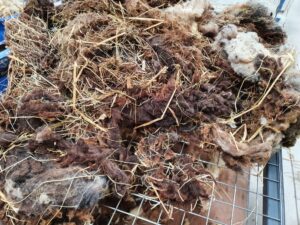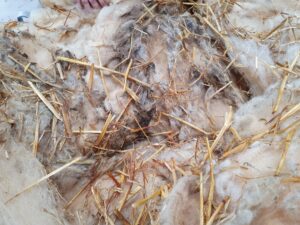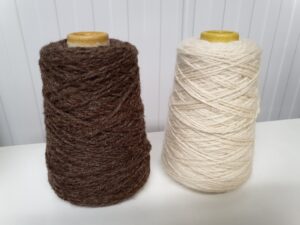Having your own fibre turned into a yarn is an often dreamt of idea, here at Rampisham Hill Mill we will endeavour to make that dream turn into reality.
We understand you might not know exactly what yarn you require your fibre processing into, so we have set out a helpful guide below, to the commonly used yarn specifications.
Firstly it is important to understand the type of fibre you are going to send to us, as not all fibres are suited for every yarn size. As a general rule of thumb, the more crimpy bouncy fibres such as those from Down Breeds etc, will produce softer bouncier yarns and as a result are not often suited to being spun into a really fine yarn. Whereas breeds with flatter more lustrous fibres, such as Romney or Gotland etc. are far more suited to being spun into finer yarns.
We also can’t mention often enough that the quality of the incoming fibre WILL directly affect the quality of the returned spun yarns, By including a bit of mediocre fibre, don’t think you will get an extra ‘ball of wool’ with the extra handful you included, you are far more likely to compromise the quality of the whole of the rest of the batch instead as a result and receive back an uneven yarn.
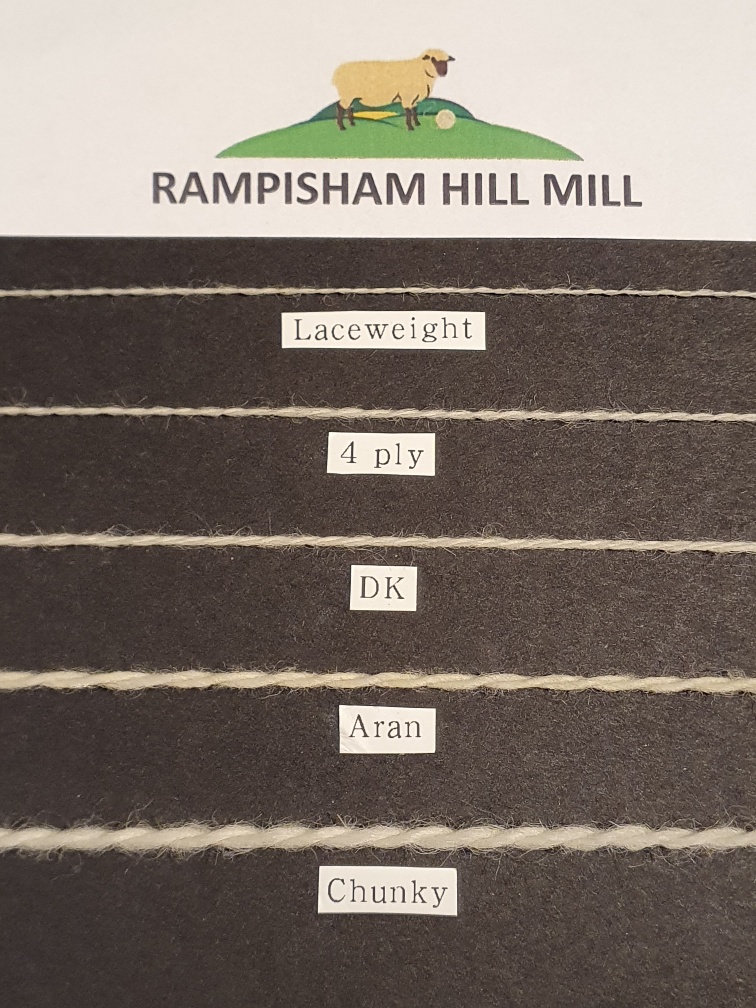
CLASSIFYING YARN SIZES
Yarn size is often talked about with a reference to New Metric (Nm). We usually use this as our preferred reference point as well, and an easy formula below will help you determine what you have, or need.
New Metric Count (Nm) = length of yarn in meters (m) / weight of yarn in grams (g)
As an example a 6Nm yarn weight will have a length of 600m per 100g, and a 2nm yarn will have a length of 200m per 100g etc.
Finished yarn is then written down as two numbers, the first number being the number of singles in the plied yarn and the second number being the weight of the singles used in that plied yarn.
As an example a single 6Nm yarn will be written as 1/6 or a yarn consisting of three 6Nm singles plied together would be written as 3/6, this 3/6 yarn would have a weight of 200m / 100g so would be classified as a DK size (see below).
OUR COMMONLY PRODUCED YARN SIZES
- Lace weight – typically around 400m+/ 100g and often made from 2/12 or 2/10
- 4 Ply – typically around 250 – 400m / 100g and usually made from 2/6
- DK (Double Knit) – typically around 180 – 250m / 100g and usually made from 2/4 or 3/6
- Aran – typically around 120 – 180m / 100g and usually made from 3/4 or 2/3
- Chunky– typically around 80-120m / 100g and usually made from 2/2 or 3/3
FINISHING OPTIONS
Once spun your yarn can be finished by winding on Cones or in Hanks. Or for a small additional charge we can wash your yarn and finish it as Twisted Skeins usually in either 50g or 100g weights depending on your final yield of spun yarn.
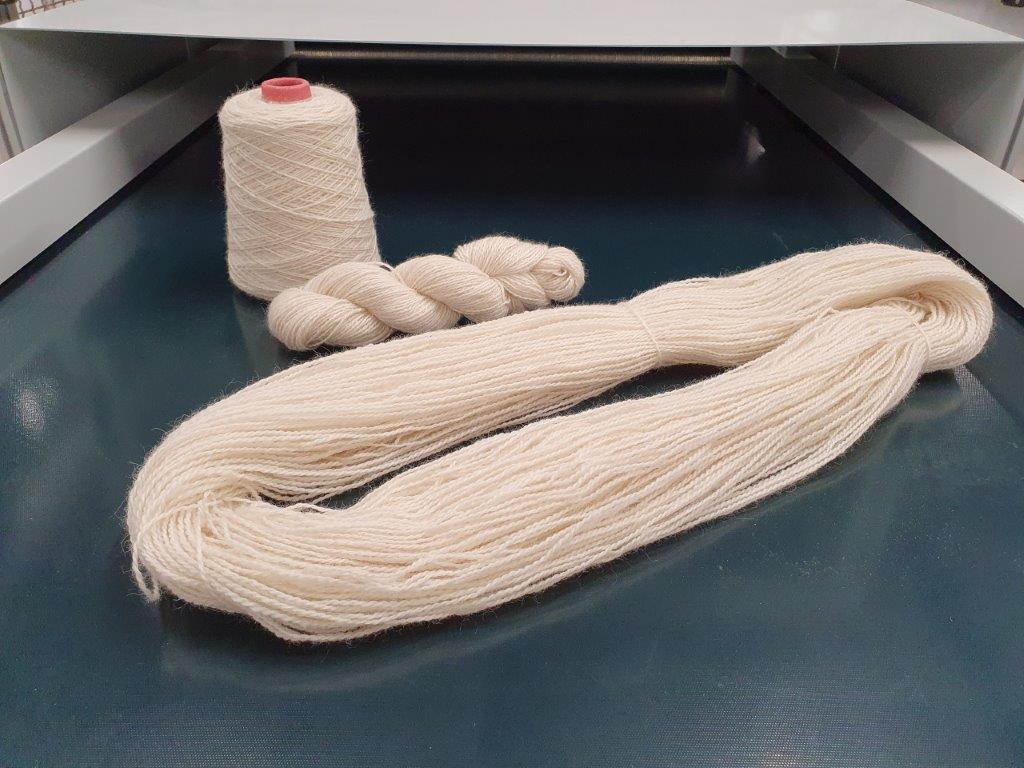
DON’T GIVE UP EASILY
If you have some fibre but you think it is beyond salvageable, just take a look below. After 4 hours of hand sorting & picking through the fleeces by the client to remove the vegetation matter, the end result was we were able to produce some lovely yarns, finished to a chunky specification for the client.
